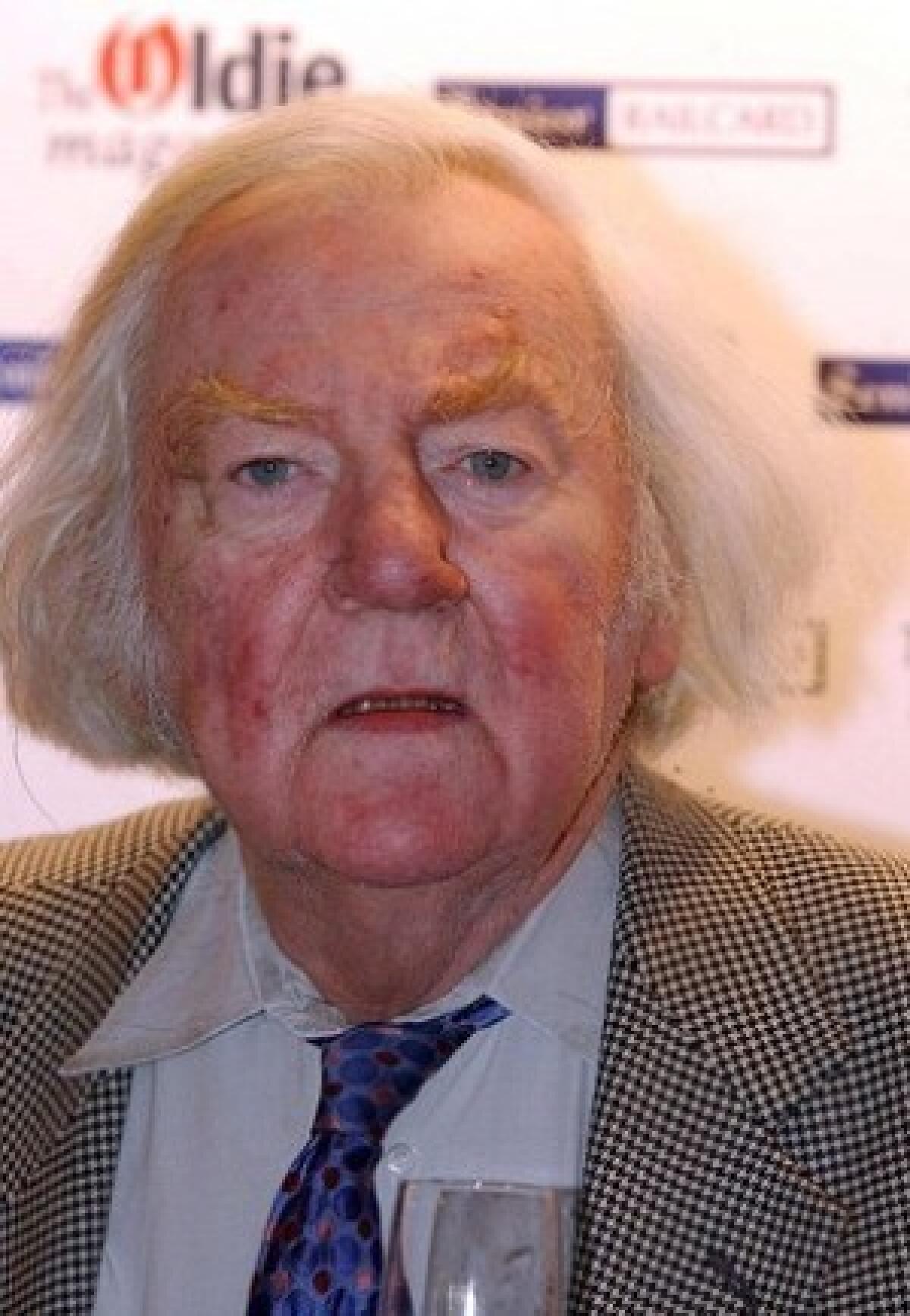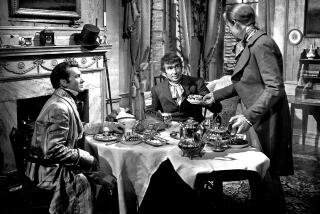Keith Waterhouse dies at 80; author of the novel ‘Billy Liar’

Keith Waterhouse, a British writer, raconteur and wit whose works include the enduringly popular novel “Billy Liar,” died in his sleep early Friday at his London home, his family said. He was 80.
Waterhouse had his first major success in 1959 with “Billy Liar,” the story of a funeral parlor worker who escapes into a world of fantasy. It became a hit 1963 movie starring Tom Courtenay and Julie Christie, and spawned a television series.
Waterhouse also helped write some of the best-known British films of the 1960s, including “A Kind of Loving” and “Whistle Down the Wind.”
In works such as the play “Jeffrey Bernard is Unwell” -- based on the life of a fellow journalist with a reputation for excess -- he commemorated a hard-drinking golden age of Fleet Street reporters and Soho booze dens.
It was a world in which he had extensive firsthand experience. In the reference book “Who’s Who,” Waterhouse listed his recreations as “lunch.”
Born Feb. 6, 1929, into a working-class family in the industrial northern English city of Leeds, Waterhouse was a teenage clerk in an undertaker’s office and served in the Royal Air Force before getting a job as a reporter on the Yorkshire Evening Post, and then on the Daily Mirror in London.
His first novel, “There Is a Happy Land,” was published in 1956. He had a global success with “Billy Liar” and went on to write a dozen more novels as well as plays, screenplays and memoirs.
He also helped create the satirical 1960s TV series “That Was the Week That Was” and wrote a twice-weekly column in the Daily Mail newspaper for a quarter of a century until earlier this year.
Waterhouse railed against what he saw as political correctness and declining standards of English. He wrote a journalism textbook, “Waterhouse On Newspaper Style,” and founded the Assn. for the Abolition of the Aberrant Apostrophe, which attacked poor punctuation on shopkeepers’ signs.
When he turned 80 earlier this year, Waterhouse told the Independent newspaper that he didn’t fear death.
“There’s always tomorrow,” he said. “At least there has been so far.”
Twice divorced, Waterhouse is survived by a son and a daughter.
More to Read
Start your day right
Sign up for Essential California for the L.A. Times biggest news, features and recommendations in your inbox six days a week.
You may occasionally receive promotional content from the Los Angeles Times.






